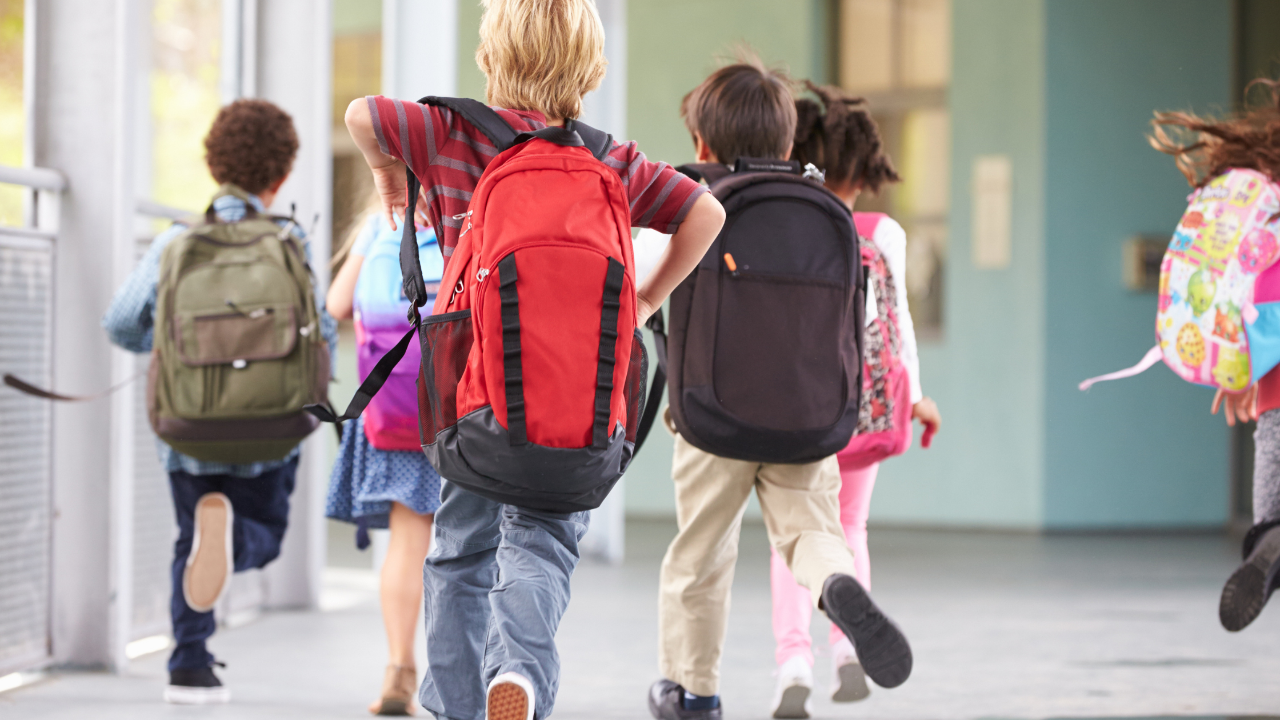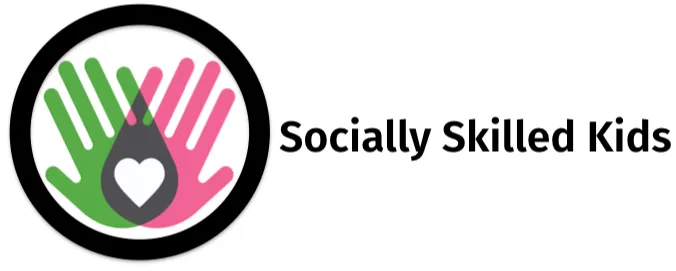Back to School! It's Time to Teach Social Skills!
Jul 14, 2020
Back to school is right around the corner! How many days until you go back to school?! Summer break seems to go by faster every year. Soon we will all be checking off our school supplies lists and shopping for new school clothes.
As another new school year is about to begin, I’d like to share some of my favorite ways to help students build their social competence.
Of course academic are extremely important, and teachers are all very busy with overflowing academic plates, but I believe it is equally important {if not more} to grow our student’s social competence as well.

Why should we spend time working on social skills?
Because competent social skills are necessary for both academic and social success. Students who have competent social skills will be able to engage with each other more successfully in the classroom, while working together on group projects, sharing space and materials with others, and while playing at recess.
Students who have strong social skills will be able to solve problems more successfully, ask for help when needed, and accept help or feedback when given, persevere through challenges.
The first month that we are back at school is a great time to work on the very important social skills of working and playing with others in a group. Being able to cooperate, negotiate and work as a team, is critically important for both social and academic success.
Working or playing in a group requires so many social skills. One must be able to cooperate, negotiate, take turns, share space and materials, be a good sport, communicate, be respectful, take the perspective of others,
….just to name a few!
So much of our time in school is spent in groups. Whether working on an academic task, playing during recess or simply walking in line to go to art class, we are constantly using social skills.
If children struggle to interact with others in groups, academic learning will be difficult, relationships will suffer, behavior problems will likely arise.
While you can and do support social skills while simply having your students work in groups, I like to teach children skills that will help them get along with others through fun and interactive games and activities. By working on this in a fun game or activity, your students can focus on the skill needed to play the game and not have to try to learn a new academic skill at the same time.

Here are some of my favorite activities that support social skills needed for getting along with others
Barnyard

This game is so much fun! It’s a great game to work on many skills needed to work or play together in a group. To play this game children must cooperate, listen, focus, and attend to others in order to be successful.
*Warning: This is a loud game, so be prepared!
Keep It Up

This simple game is an amazing way for you to help your students develop and improve social skills such as; teamwork, cooperation, self regulation and good sportsmanship. Amazing!
Using a beach ball or balloon, children hit, or as I like to say, “Tap” it back and forth, (similar to volleyball) with the goal to keep the ball or balloon from hitting the floor.
It’s easier for children to use a balloon because it floats in the air longer than a beach ball so I usually use that. But, if you are working with older kids or you want more of a challenge, by all means go for the beach ball.
Working with special needs students? Have some students with special needs in your group? The set up for this game is important. Even though it is a simple game, it can go very wrong if you do not take the time to clearly explain and model how to play and some ground rules.
First, I have the children practice “tapping” the ball/balloon. Children who have challenges with self regulation will need lots of practice tapping the ball/balloon. I literally practice tapping the ball/balloon for a good 5 minutes before we even begin.
If you have a second adult handy, model tapping with them. If not, choose a student who you think will be able to “tap” and model with them.
Next, discuss the need to work together, to tap the ball/balloon in such a way that it is likely the other person will be able to receive it and send it back (as opposed to volleyball where the object is to make the other person miss the ball).
I always talk to the kids about aiming the ball/balloon toward another person, v.s. just smacking it randomly in a reactionary kind of way. The ball/balloon should go over, not up {there are no kids on the ceiling…hopefully!}
Finally, talk ground rules. As a group, decide…can you move around, or do you have to stay in one place?
I like to have kids “glue” their feet to the floor so that they can’t move around. This helps to avoid collisions but is also VERY tricky for kids to do.
Other times, I allow kids to take 2 steps in either direction.
Another way to play is by sitting down. This is a great way to play with kids who struggle a lot with physical regulation as it really helps them have a physical boundary.
Another important rule to discuss is personal space. I like to physically show the kids when the ball/balloon is in their space and they can tap it and when it is not in their space and they need to let someone else tap it.
* Also, no diving, running, using your head or kicking the ball/balloon. Those can all lead to accidents.
Now, after all that, you are ready to play!
Getting a good volley going can take some time for young children or children with self regulation challenges. Be patient and practice a little bit each session or as often as you can. Keep track of how many times the group can tap the ball/balloon without it touching the ground and you will see progress, I promise!
Octopus Tag

One person starts as “it” {the tagger}. Each time he/she tags someone they hold hands and become like a tentacle on an octopus.
As the children continue playing and tagging more people, they will make the octopus tentacle longer and longer. The children on either end of the tentacle are able to tag other children with their free hand.
All other children are not allowed to tag but must contine holding hands and running together as a group to try and tag their next target.
This is a great game to practice cooperation and teamwork because the group must move together to be successful.
Tips for playing octopus tag: Explain the rules and model using at least 3 people so that you can demonstrate how people on either end can tag.
This game works best with no more than 5-8 players so that the “tentacle” doesn’t get too long and the children on either end can talk to each other to decide which way to run.
Discuss the importance of teamwork and cooperation before playing this game. If the children in the tentacle do not cooperate and move together, they will not be able to go anywhere. Using good teamwork will help the group be able to start and stop and switch direction as needed.
Adaptation: To make this game a little bit easier, have the original tagger be the leader throughout the whole game. This person decides which direction the group moves in as the game is played.
As with all tag games, it is helpful to limit the space that the children can run in. Setting clear physical boundaries increases the chance that the group will have a fair chance to tag others. To make it a bit easier, you can make the boundary smaller as the tentacle gets bigger. For example, you can use hula hoops to show the boundaries and move them in closer and closer as necessary.
*It’s a good idea to supervise this game closely to assist the children and avoid too much tugging and possible falling. A teacher may even want to be part of the tentacle to help students negotiate moving together.

Here are some of my favorite books that support social skills needed for getting along with others:


Listen and Learn by Cheri J. Meiners, M.Ed.
Don’t Eat The Teacher! by Nick Ward
Danny The Dog’s Dilemma by Sean Yue
A Big Guy Took My Ball! by Mo Willems
The Almost Terrible Playdate by Richard Torrey
Howard B. Wigglebottom Learns We Can All Get Along by Howard Binkow
Here are some of my favorite games that support social skills needed for getting along with others:
Jenga (by Hasbro)
This is such a great game. It is found in most classrooms and if not, it is inexpensive and can be purchased in many stores such as Target or toy stores. Children must work together to build the tower higher and higher. This game works on self regulation (physical and emotional), teamwork, cooperation and especially good sportsmanship.
The tower will fall eventually, the group needs to remember to be good sports when it does.
When I play this game with my students, we practice what we will do and say when the tower falls. We talk about how the person who “makes it fall” may feel. We talk about how that person may feel if the rest of the group gets angry when it falls.

20 Questions (in teams)
Kids love this classic game. And the best part, no materials needed! Simply come up with an idea and your good to go!
It is helpful, however, to have access to a whiteboard and dry erase marker or something similar, to write down the questions as they are asked.
Putting kids in small teams to play this game fosters teamwork, cooperation and negotiation.
If you have themes or topics for the idea that is being guessed, you can also provide children with a game that works on perspective taking. Have the topic be “about me” and each child gets a turn being the person to come up with the item the others are guessing. The groups have to think about that person in order to narrow down their questions and make them smarter.
Hang Man (in teams)

Same as above, kids love this classic game and when you put children in groups and work with themes, it can really provide for some excellent opportunities to practice and improve a wide variety of important social skills.
Don’t like the reference of “hang man?”
Try “Plant a Flower“ same game as Hang Man but you draw a flower pot, then each time a letter is guessed that is not found in the word or phrase chosen, draw a part of the flower.
Start with dirt, a seed, roots, stem, leaves, petals…. This should be enough but you can always add on a bee, or a butterfly, sunshine, etc.

By teaching, practicing and growing our student’s skills and abilities to work and play in groups, we will help them to be more successful socially and academically as well as be better prepared for future relationships and even employment!


Thanks So Much and Happy Teaching!
Cindy ~Socially Skilled Kids
Would you like to receive specially designed, creative and interactive FREE teaching resources?
Join us in the Teacher’s Lounge!

